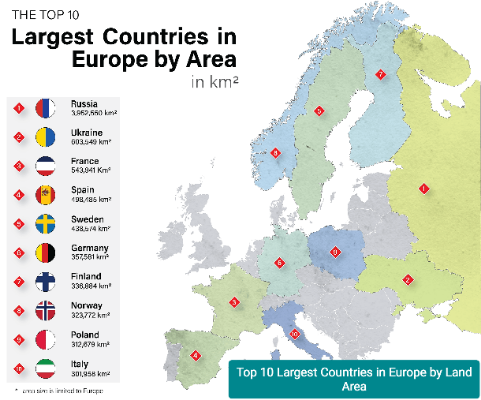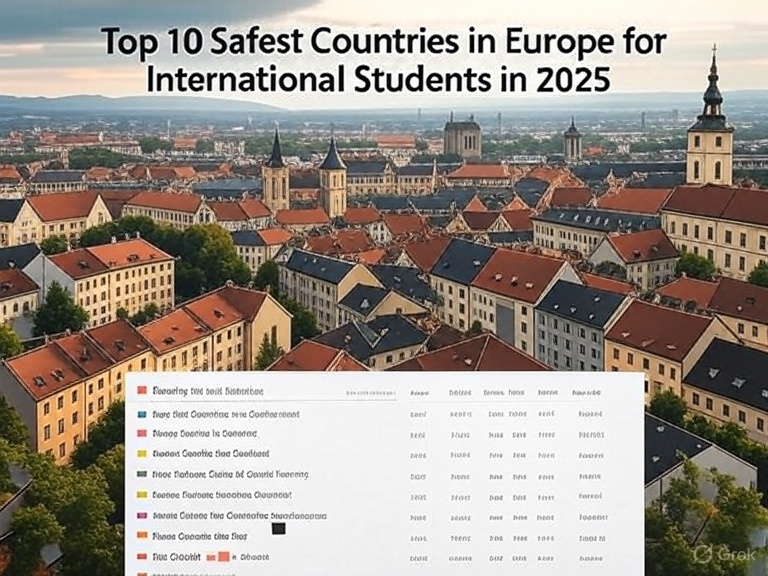Engineers are undoubtedly the backbone of modern world. Everything from roads and bridges to smart cities, machines, and even the tech we use daily are all made happen by engineers. Because of this, engineers are in demand everywhere, especially in Europe. Many European countries are dealing with a shortage of skilled workers, and engineers are high on the list. Are you a civil engineer, software engineer, mechanical, electrical, or any other specialty? Then your skills are likely needed in one part of Europe or another.
But getting from your home country into Europe to work as an engineer isn’t just about booking a flight. You need a legal way to live and work there. That’s where work visas come in. Every European country has its own visa rules and systems. Some have fast tracks for engineers and other skilled professionals. If you’re thinking of moving to Europe to build your career, you’re in luck.
In this article, we’ll break down what you need to know about immigrating to Europe as an engineer. We will also talk about the visa options available in different countries, and how you can actually make the move happen without stress.
What to Know About Engineer Work Visas in Europe
Before jumping into applications, there are a few things you should know. Europe isn’t one single country. It’s made up of many different countries, each with their own immigration rules. However, if you’re targeting countries in the European Union (EU) or the Schengen Area, some systems are interconnected. That means if you get a visa to work in Germany, it doesn’t automatically let you work in France—but it can make travel and even later relocation easier.
Another thing to know is that most European countries are actively looking for skilled professionals from outside Europe. Countries like Germany, the Netherlands, Sweden, and Ireland are popular destinations for engineers. They’ve even made special visa programs just for highly-skilled workers like engineers, tech experts, and health professionals.
General Requirements for Engineers Work Visa
Each country is unique, so requirements vary, but there are some general requirements to think about when applying for an engineer work visa in Europe:
- Job offer – Most visas will ask for you to have a job offer from a European employer. There are some programs with job seeker visas where you go to the country to look for a job, but in short most will say that you need to get the job before you go.
- Qualifications – You are going to have to show that you have either an engineering degree or training. Some countries may ask for validation of your degree to support their requirements.
- Experience – Most visa programs will be directional towards people who have experience. Partnering your education with a few years of experience will help your odds.
- Salary threshold – The job offer will need to meet some type of minimum salary requirement in order to meet the requirements of the visa. This because by country and job.
- Language – Not all visas require knowledge of the country language, but knowing German in Germany or Dutch in the Netherlands makes your life and work easier and in some cases is an obligation for the job.
- Health insurance and accommodation – As part of the visa process you will also need to provide proof of health insurance and some cases show proof of a confirmed accommodation.
Immigration for Engineers: Work Visas in Europe
Let’s look at some of the main visa options across European countries that are great for engineers:
Germany EU Blue Card & Job Seeker Visa
Germany has one of the strongest economies in Europe and a huge demand for engineers in mechanical, civil, and software fields. The EU Blue Card is one of the most popular visas. It’s for non-EU professionals with a university degree and a job offer that pays above a certain threshold. If you don’t have a job yet, Germany also offers a Job Seeker Visa which gives you up to six months to enter the country and look for work.
Netherland’s Highly Skilled Migrant Visa
The Netherlands has a special program for “knowledge migrants.” If you’re an engineer with a job offer from a recognized employer (called a sponsor), you can apply for this visa. The salary requirement is key here, and you don’t need to speak Dutch to qualify. Many international engineering companies in the Netherlands hire English-speaking staff.
Work Permit for Highly Qualified Professionals in Sweden
Sweden has a simple and straightforward process for skilled workers. Once you get a job offer in engineering, you can apply for a work permit. The job offer must be for at least 3 months and come with a salary that aligns with Swedish collective agreements. You can also bring your family with you.
France Talent Passport
France created a “Talent Passport” to attract skilled professionals, including engineers. If you have a job offer and a university degree, this visa allows you to live and work in France for up to four years. It can also lead to permanent residency later on.
Irish Critical Skills Employment Permit
Ireland has a list of occupations that are in high demand, and engineers are on that list. The Critical Skills Employment Permit is designed for workers in high-demand roles. You’ll need a job offer that pays a specific minimum salary, and the visa makes it easier to apply for permanent residency later.
Austria Red-White-Red Card
Austria’s Red-White-Red Card is for qualified professionals. Points are awarded based on your qualifications, work experience, age, and language skills. Engineers score high here, especially if they have German language knowledge. The visa lasts up to two years and is renewable.
How to Immigrate to Europe as an Engineer
Alright, now that you know your options, how do you actually make it happen? First, start by researching which European country matches your skills best. Do you speak any European language? Do you want to work in tech or construction? Once you know your target country, go on their official immigration website and check for engineering job openings.
Next, apply for jobs. Use websites like LinkedIn, Glassdoor, and country-specific job boards. If you get a job offer, your employer will usually help you with the visa process, or at least give you the documents you need.
Once you have your offer, gather your documents like degree certificates, passport, work history, and any translated versions if needed. Apply for the visa through the country’s embassy or online system. Some countries may require you to attend a visa interview.
You’ll have to be patient. Visa processing takes weeks or months, so while you wait you can start preparing for the move. You can find accommodation, know the cost of living, and maybe even familiarizing yourself with the local language.
Final Thoughts
If you are an engineer looking for a new experience or just better job opportunities, Europe is calling. The continent is looking for skilled professionals like you, and they actually need you. A number of European economies have an aging population and/or booming industries, so they actually are in a shortage of engineers, building design professionals, and skilled laborers.
Immigrating is not easy, however. It takes planning, patience, and a little bit of willingness to take a chance. But once you are over there, you can experience amazing things (both professionally and personally). High salaries and career advancement, world class healthcare, education, and a better quality of life are all things that Europe will offer you for a fresh start you might not regret.
So, do not be afraid of the bureaucracy. Europe needs more engineers like you, and its your turn to decide how to proceed.






